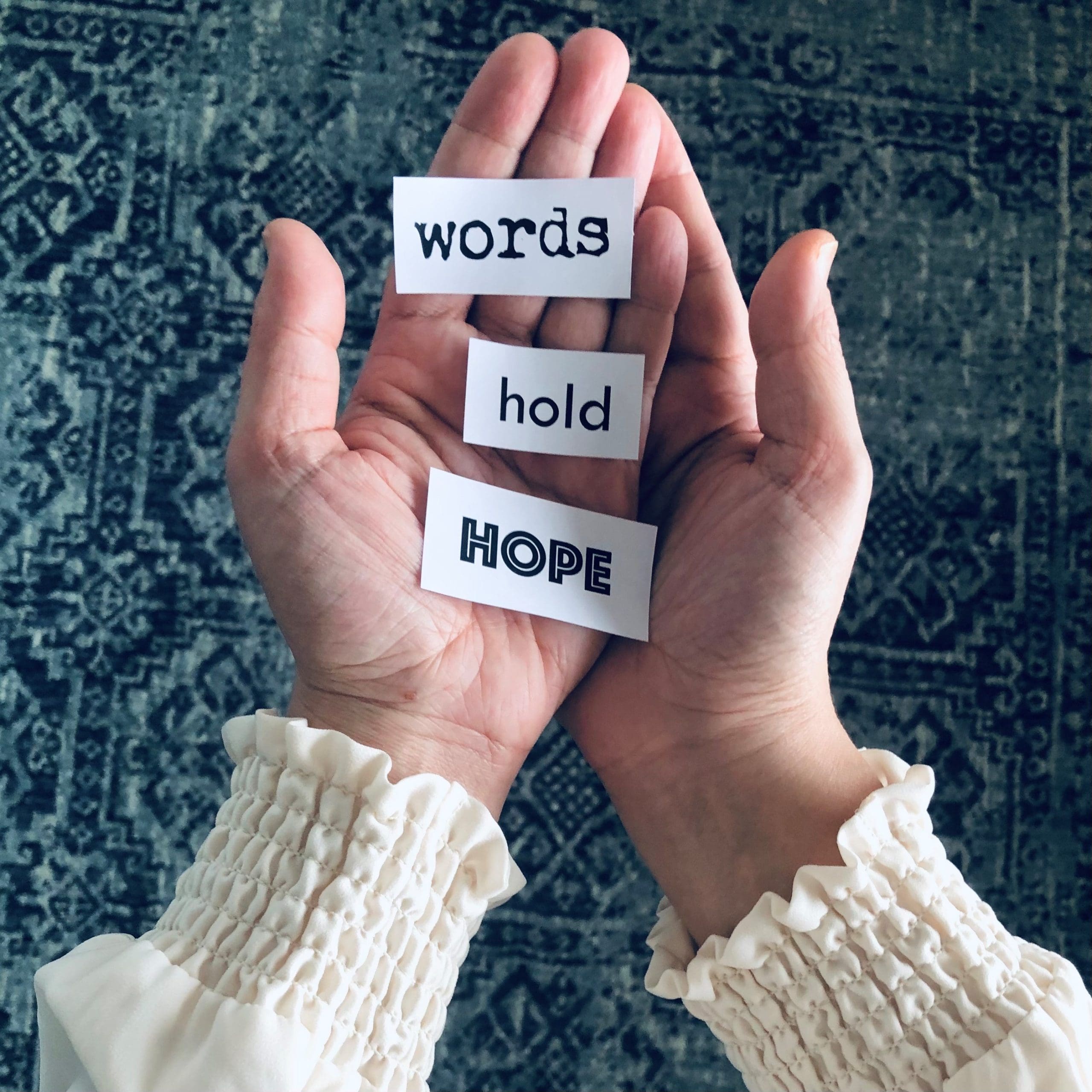Let’s Be Honest about Mental Health
By: Elizabeth @wordsholdhope
Elizabeth bravely writes about her mental health journey to help others in their journey.

Let’s be honest, no one ever recovered from mental illness without honesty. If you’ve experienced mental illness, you know it can back you into a corner of shame and disgust. It can make you shut down and lose your ability to easily communicate.
Honesty is crucial to solving a mental health problem or crisis. I was born with the “honest to a fault” gene but I know this doesn’t come as naturally to some. This is what has saved me time and again in my journey with mental illness. It’s easy to want to hide feelings that don’t make sense, but these are indeed the feelings that need to be shared. It is essential to find comfortable surroundings to expel these feelings and thoughts. That’s how I choose my family, friends, and mental health practitioners I share my true feelings with.
I’ve had a 20-plus year ride with mental illness and acquired a major depression, bipolar, and anxiety diagnosis. I’ve been on 25-plus medications, been hospitalized 5 times, had 13 electroshock therapy treatments at age 18, been labeled treatment resistant, and spent 2 years away from home in residential treatment facilities out of state. On top of all that I dropped out of high school after being at the top of my class and tennis team. Since all of this I received my GED, graduated cum laude from college with a B.A. in history, and I give presentations in colleges to end the stigma surrounding mental health.
When I think about what I have learned over the years, I think about honesty and how often it has helped me. I may have at one time been afraid to speak to mental health professionals but right now it comes quite easily because honesty gains respect and trust I’ve learned. There is no litmus test when it comes to mental health only the ability to communicate what is going on in our minds to a professional. Honesty is crucial in this exchange. I frequently phrase things like, “this might sound funny” or “is there any reason I might be feeling this way,” when in therapy or with a physician. Therapy is a critical component that complements a physician visit. It is in therapy when you shine a light on what is not only troubling you but what is also bringing you joy. Therapy illuminates the holes that need to be patched in our lives and equips us with the needle and thread to do so. It also exemplifies what is going well.
When I present my life story to a room of college students, I do not know personally, some people might be confused at the lack of privacy I must feel; however, I have been articulating feelings for years for professionals and loved ones. They are only feelings and thoughts, something we all have. I’m usually unaware I am little by little creating an open environment for listeners to share their experiences at the end of the presentation’s question time. My complete honesty and transparency do not go unnoticed. I am stunned when I hear personal tales of mental illness in families and personal strife. The best part about honesty is it breeds honesty. It’s kind of like “one-upping” someone, but all for the better. My honesty has led to some courageous student exchanges.
Mental illness is a disease based on deceit and lies we tell ourselves. When we uncover these lies, they lose power simply in our speech. Speaking our feelings and thoughts is healing. That’s why therapy is essential. Communicating feeling suicidal, personally, has always made it lose its power for me. It is necessary we encourage others to speak up about this harmful yet very real symptom of mental illness. It’s one symptom in a list of many, that’s it, and it’s treatable.
Honesty is our best weapon against mental illness. The disease itself would love us to lie and never get better and stay miserable. I have learned honesty breeds honesty, establishes trust, alleviates pain, and makes help possible. If you are struggling, you deserve help and being honest will bring you the health and healing you deserve in due time.

Emily Thompson, MSW, LICSW
Expert Advice
As a clinical social worker and talk therapist, I am able to support, educate and empower others. I work towards change – with my patients – and in our world. I am constantly working to break down the stigma of mental health. The National Alliance on Mental Health defines stigma as “how someone views another-or even themselves-in a negative way because they have a mental health condition.” Incredibly, 1 in 5 Americans is affected by a mental health condition. On average, there are 130 suicides a day in the U.S. Still the stigma lives on. Feelings of shame, resistance or embarrassment keep people from seeking help. That means less people are in therapy and learning to manage their symptoms.
At Mankato Clinic, we want to make sure patients do not feel shame and discouragement when bravely seeking support. To meet patients where they are, I provide psychotherapy, also known as talk therapy, within the family medicine department. Together with primary care providers, I treat medical conditions that affect mental health or vice versa. I also provide short-term therapy to show patients ways to manage anxiety, depression, stress, grief, and other social or emotional issues. Typically, I meet with patients for 1 to 4 visits, but timeframes do vary. If long-term therapy is needed, I refer patients to our psychology or psychiatry department. We offer a wide range of mental health professionals and services because each person’s journey is unique.
The first step to ending stigma is by understanding that getting help and feeling better is OK no matter what condition you have – or do not have.
To reach out for help, contact your primary care provider. If you or a loved one is having a mental health crisis, call or text 988 to reach a 24/7 crisis center.